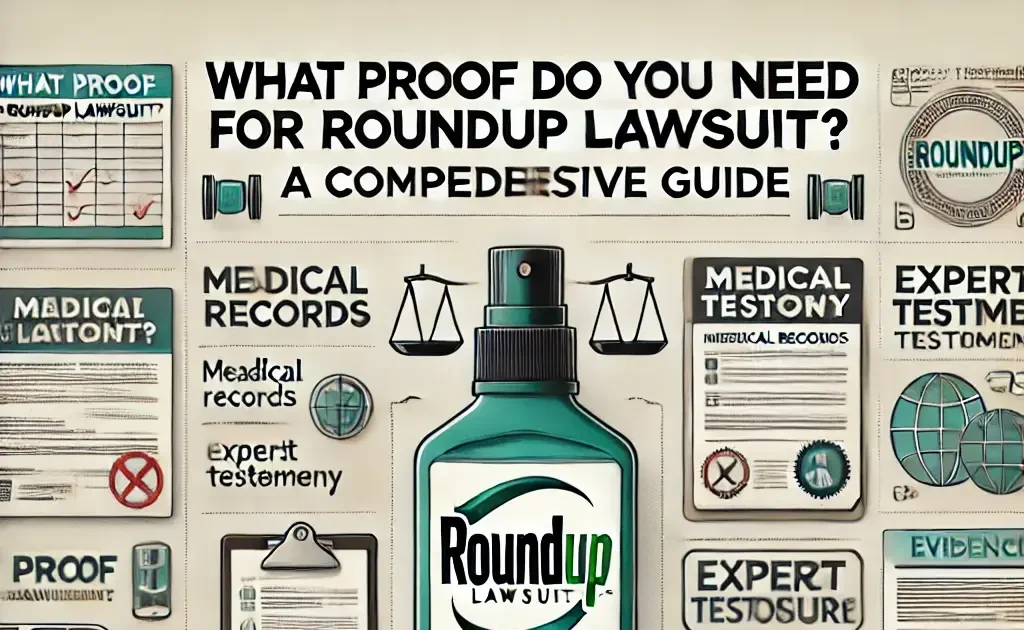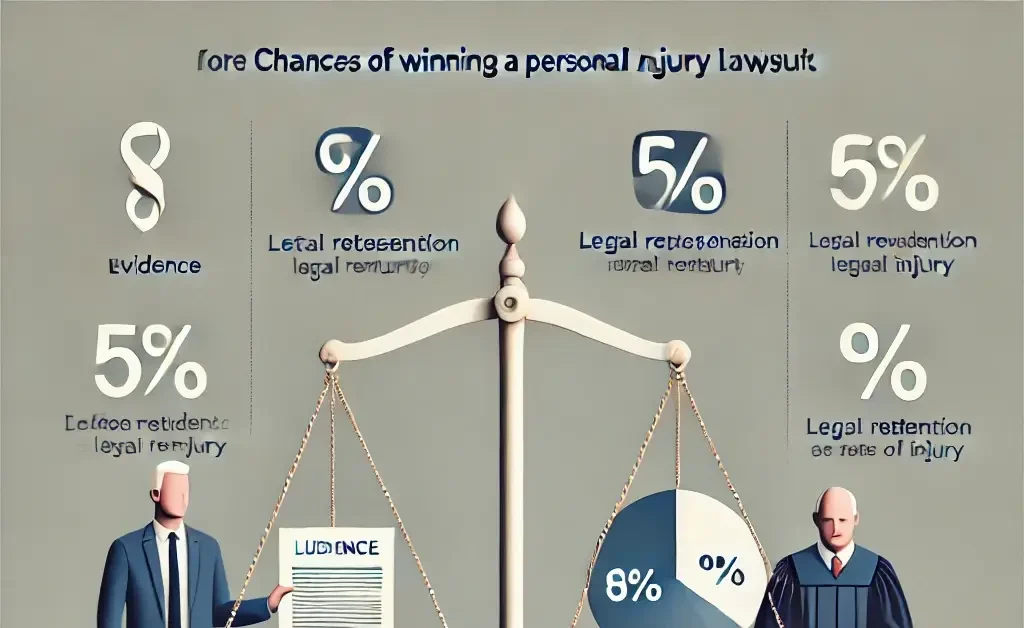Introduction
In recent years, Roundup—the herbicide widely used for its efficiency in killing weeds—has come under intense scrutiny due to its active ingredient, glyphosate. Numerous lawsuits have been filed against the product’s manufacturer, alleging that exposure to Roundup has caused various health conditions, most notably cancer. If you think you have been injured by exposure to Roundup and are contemplating legal action, knowing what evidence will be needed for your case is important. In this article, we’ll look at the most important evidence you need to support your case and win your lawsuit.
The Link Between Glyphosate and Health Hazards
Glyphosate is a chemical agent used in numerous herbicides, with Roundup being a well-known product that contains it. Through the years, research has associated glyphosate exposure with a range of health problems, such as the higher risk of cancer, notably non-Hodgkin’s lymphoma. Such discoveries have prompted thousands of lawsuits against Bayer, the owner of Monsanto, which initially developed Roundup.
But it’s worth noting that not all those who have been exposed to Roundup will end up with cancer. The greatest challenge in such cases is establishing a direct causation between exposure and harm. This is where concrete evidence comes in handy.
What Evidence Is Needed for a Roundup Lawsuit?
When you sue Roundup, there are important kinds of evidence to present so that you can prove your claim and make your case stronger. Here are the key pieces of evidence you will require:
Medical records of health complications
The most significant type of evidence is your medical history, especially any cancer or other condition diagnosis associated with glyphosate exposure. The most frequently reported diseases associated with the use of Roundup are non-Hodgkin’s lymphoma, leukemia, and other cancers. Your physician must render a diagnosis with supporting tests, lab work, or scans showing the existence of a cancerous condition or other associated health issues.
Also, if you have any medical treatment records, chemotherapy, or current care associated with these conditions, be sure to include those too. These records are important in establishing that your health was directly affected by chemical exposure.
Documentation of Roundup Exposure
In order to link your health problems to Roundup exposure, you need to determine your exposure history. This would be how often and for how long you handled the product, and any information regarding your workplace. If you were a landscaper, a farmer, or in any other occupation where you had high exposure to glyphosate, this will help your case immensely.
In certain instances, it may also be helpful to include the testimony of co-workers or other people who have seen your exposure to Roundup. If you have receipts, product tags, or pictures confirming that you applied the herbicide, this is helpful evidence as well.
Witness Testimonies and Work Records
Witnesses who can support your exposure to Roundup can add more credibility to your case. Testimonies from relatives, friends, coworkers, or employers who observed you applying the herbicide or working around places where it was heavily applied can support your allegations.
Further, work records showing your extensive exposure to Roundup, like job titles or work histories that enumerate chemical use among your daily responsibilities, can lend more authenticity to your claim of exposure.
Scientific Studies and Expert Testimonies
Scientific evidence is critical in proving a link between exposure to glyphosate and the onset of health conditions in Roundup lawsuits. Various studies, such as those conducted by the International Agency for Research on Cancer (IARC) and other credible science institutions, have demonstrated that there is an association between glyphosate and cancer.
Expert statements from toxicologists or environmental exposure medical specialists can serve as additional evidence to your case. They can articulate the scientific foundation for your illness and the risks involved in long-term exposure to Roundup.
Evidence of Roundup’s Established Health Risks
Another essential type of evidence is proving that Monsanto (owned by Bayer today) was aware of the health risks of glyphosate and did not inform consumers. Proof of internal memos, regulatory filings, or previous lawsuits that indicate the company’s knowledge of Roundup’s health risks can be used to build your case, especially if you can prove you were exposed despite these known risks.
The Legal Procedure of a Roundup Lawsuit
Filing a lawsuit against Monsanto (or Bayer) is a process that needs to be planned and prepared for. It’s important to seek the advice of a seasoned attorney who has experience in product liability lawsuits, especially mass torts. An attorney will be able to walk you through the intricacies of obtaining evidence, filing court documents, and negotiating a settlement if necessary.
In addition, most law firms handling Roundup lawsuits are contingency fee-based, meaning they get paid only if you win your case. This makes it possible for people to file a lawsuit without incurring upfront legal expenses.
Compensation in a Successful Roundup Lawsuit
If your case is successful, you may be awarded various types of compensation. These can be:
- Medical Expenses: Reimbursement of the expense of treatment due to your disease as a result of Roundup.
- Pain and Suffering: Reimbursement for bodily pain, emotional suffering, and loss of lifestyle.
- Lost Income: Compensation for lostwages if your disease has affected your capacity to work.
- Punitive Damages: In certain cases, you could receive additional payment as punishment for the negligence of the defendant in managing public health hazards.
What Are Your Chances of Winning a Personal Injury Lawsuit?.
FAQs
What health conditions are associated with Roundup exposure?
Studies have associated Roundup with many forms of cancer, most notably non-Hodgkin’s lymphoma, and leukemia, liver disease, and kidney injury.
How do I establish that I was exposed to Roundup?
You can establish exposure by means of medical records, witness statements, work history, receipts, or photographs of your use of Roundup.
How much time do I have to sue Roundup?
The time limit for filing a Roundup lawsuit is different in your state, but it is usually one to three years from the time you were diagnosed or when you realized the link between your condition and Roundup exposure.
What do I do if I believe Roundup gave me cancer?
Seek the advice of an attorney to review your case. Collect your medical history, proof of Roundup exposure, and any corroborating documents connecting the herbicide to your sickness.
Conclusion
The path to victory in a Roundup case may not be easy, but with the right proof, you can win. Gathering medical records, establishing your exposure, and using scientific research can help build a good case. If you’ve been injured by Roundup, contacting a knowledgeable attorney can assist in navigating the law and getting the compensation that’s rightfully yours.
For further information regarding the health hazards of glyphosate, check out the American Cancer Society’s comprehensive guide.








One thought on “What Proof Do You Need for Roundup Lawsuit? A Comprehensive Guide”